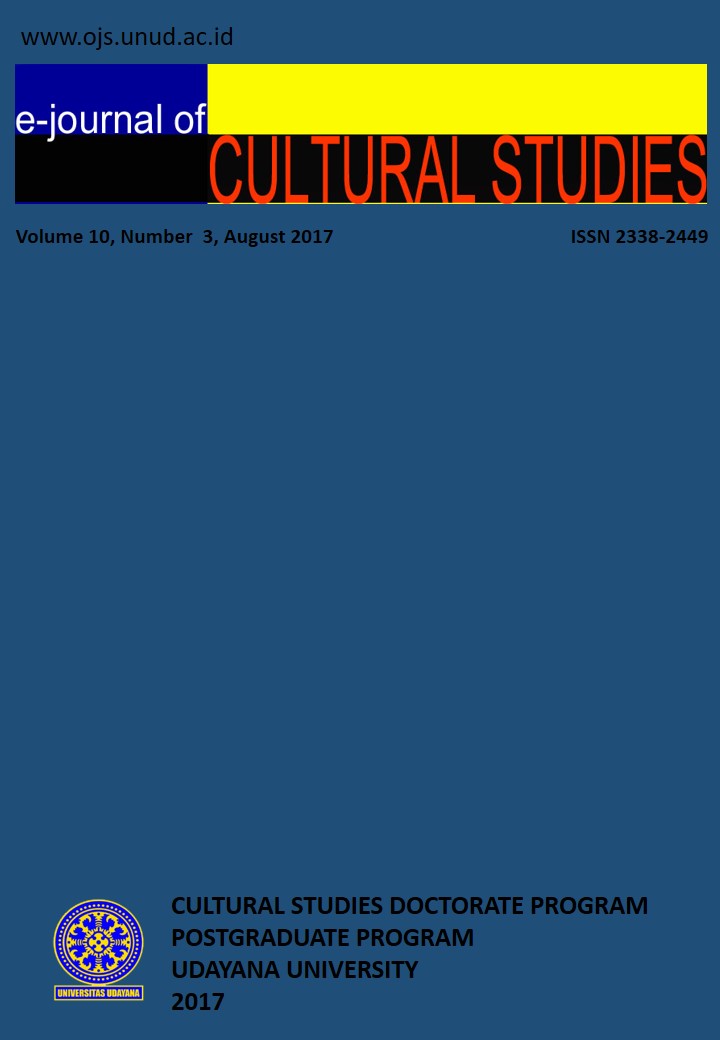TRANSFORMATION OF LULO DANCE PERFORMED BY TOLAKI PEOPLE IN KONAWE REGENCY, SOUTH EAST SULAWESI
Abstract
This present study analyzes the transformation of lulo dance performed by Tolaki people in Konawe Regency, South East Sulawesi. From the perspective of cultural studies, the study analyses an empirical field reality related to the matter pertaining to transformation. The local culture which is transformed into the global culture has caused the lulo dance to change with its new form and meanings. There is one problem which needs to be analyzed in the present study. The problem is formulated in the form of a question, namely what ideologies which have inspired the transformation of the lulo dance performed by Tolaki people in Konawe Regency, South East Sulawesi. The study used the qualitative method and is intended to analyze the transformation of the lulo dance performed by Tolaki people using the critical, interdisciplinary and multidimensional approach of cultural studies. The data were obtained through library research, documentary study, observation, and interview. After being verified, the data were analyzed using several relevant theories; they are the theory of deconstruction, the hermeneutic theory, the theory of discourse of knowledge, and the theory of semiotics.
The result of the study shows that the transformation of the lulo dance performed by Tolaki people in Konawe Regency cannot be separated from the ideologies which have inspired it. They include the religiosity ideology, the educational ideology, and the economic ideology. The contact between the global culture and local culture has caused the lulo dance to transform. The global culture indicates that a new era has come; it cannot be stemmed and avoided, meaning that many aspects in the people’s social and cultural life have transformed or changed.







